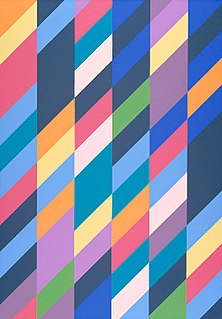A Quote by Neil deGrasse Tyson
In nature, when you conduct science, it is the natural world that is the ultimate decider in what is true and what is not.
Related Quotes
Science ... has no consideration for ultimate purposes, any more than Nature has, but just as the latter occasionally achieves things of the greatest suitableness without intending to do so, so also true science, as the imitator of nature in ideas, will occasionally and in many ways further the usefulness and welfare of man,-but also without intending to do so.
Man wants to see nature and evolution as separate from human activities. There is a natural world, and there is man. But man also belongs to the natural world. If he is a ferocious predator, that too is part of evolution. If cod and haddock and other species cannot survive because man kills them, something more adaptable will take their place. Nature, the ultimate pragmatist, doggedly searches for something that works. But as the cockroach demonstrates, what works best in nature does not always appeal to us.
One can truly say that the irresistible progress of natural science since the time of Galileo has made its first halt before the study of the higher parts of the brain, the organ of the most complicated relations of the animal to the external world. And it seems, and not without reason, that now is the really critical moment for natural science; for the brain, in its highest complexity-the human brain-which created and creates natural science, itself becomes the object of this science.
I agree that science is the best way of understanding the natural world, and therefore that we have reason to believe what the best science tells us about the objects in that world and the relations between them. But this does not mean that the natural world is the only thing we can have true beliefs about. The status of material objects as things that are "real" is a matter of their having physical properties, such as weight, solidity, and spatio-temporal location. In order to be real, such things need not have, in addition to these properties, some further kind of metaphysical existence.
The desire for total happiness and for ultimate freedom lies dormant in everyone. It is in the form of a seed. It is like a seed that contains a tree within it. In the same way, the fulfillment of man's ultimate desire is hidden in his very nature. In its perfectly developed state, it is our nature to be happy, to be free. Our real nature is the only thing that is true, and only perfecting it can bring complete satisfaction.
The exercise of magical power is the exercise of natural powers, but superior to the ordinary functions of Nature. A miracle is not a violation of the laws of Nature, except for ignorant people. Magic is but a science, a profound knowledge of the Occult forces in Nature, and of the laws governing the visible or the invisible world. Spiritualism in the hands of an adept becomes Magic, for he is learned in the art of blending together the laws of the Universe, without breaking any of them and thereby violating Nature.
If you ask ... the man in the street ... the human significance of mathematics, the answer of the world will be, that mathematics has given mankind a metrical and computatory art essential to the effective conduct of daily life, that mathematics admits of countless applications in engineering and the natural sciences, and finally that mathematics is a most excellent instrumentality for giving mental discipline... [A mathematician will add] that mathematics is the exact science, the science of exact thought or of rigorous thinking.
It is science that brings us an understanding of the true complexity of natural systems. The insights from the science of ecology are teaching us how to work with the checks and balances of nature, and encouraging a new, rational, limited-input, environmentally sound means of vineyard management that offers a third way between the ideologically driven approach of Biodynamics and conventional chemical-based agricultural systems.




































